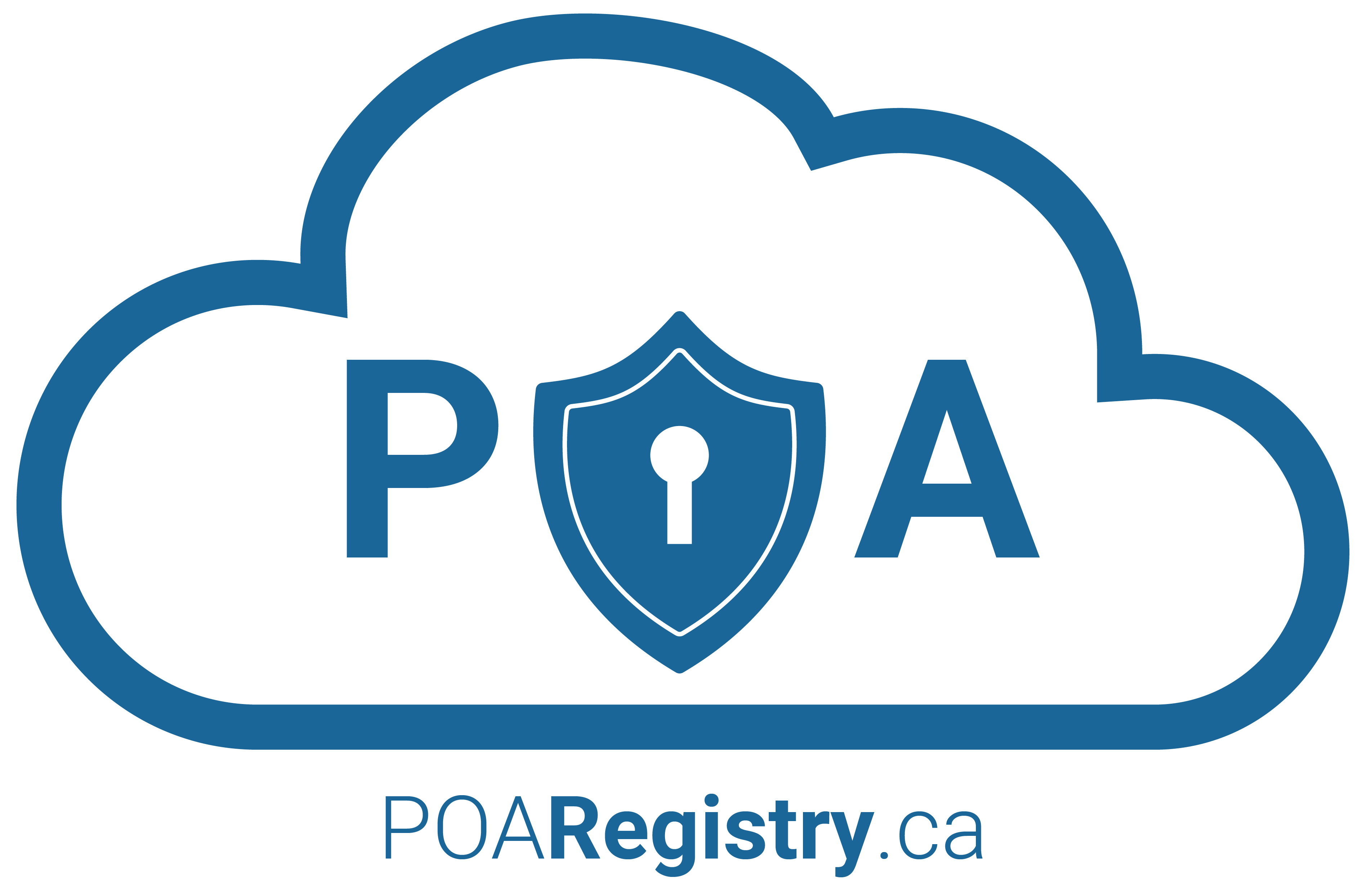
Nathan Spaling
Lawyer, Social Service Worker & Co-Founder of poaRegistry.ca
There are situations when a person is unable to make decisions on their own behalf – for example when a person is:
- not physically present; or
- not conscious; or
- not mentally capable of making certain/all decisions.
How does an adult ensure that important decisions about their property and/or health continue to be made despite one of the above situations occurring?
There are generally 2-4 options that an adult has, depending on where in Canada the person is making the decision:
- create an advanced directive (if the Province/Territory/Entity allows for it);
- appoint an assistant and/or a supported decision maker (if the Province/Territory/Entity allows for it);
- appoint another person to make decisions for you – a “substitute decision maker”; or
- have a court/tribunal appoint a substitute decision maker on your behalf.
A substitute decision maker is often the preferred vehicle because it is difficult to predict the situation or your corresponding wishes at the time a substitute decision is required to be made. A substitute decision maker is given their authority by a written document. For example, in Ontario a power of attorney for property or a power of attorney for personal care are the types of documents that appoint substitute decision makers. There are may other names for the document appointing a substitute decision maker used across Canada, such as: enduring power of attorney, general power of attorney, personal directive, representation agreement, mandate, etc.
Note: Each Province/Territory decides the rules apply to substitute decision makers and the appointing document – here are a few general similarities across Canadian substitute decision making legislation:
- Aside from Nunavut, each Province/Territory permits a separate appointment for substitute decision maker(s) to make health related decisions; and non-health related decisions (such as banking or selling a property). Although they can be the same person or combination of people.
- An adult makes their own health related decisions unless they are incapable of doing so; whereas, the adult can typically appoint a substitute decision makers to make non-health related decisions before they are incapable of making the decision.
- There are only a few decisions that a substitute decision maker automatically cannot make (i.e. consent to MAiD or change a Will/Beneficiary Interest) therefore unless the document specifies other restrictions, their authority is generally treated the same as if the person make it.
- For health-related decisions only, there is often a default list of people who can make decisions on your behalf – even if a substitute decision making document does not exist.
- The Provincial/Territory legislation/courts set out the requirements for a person’s mental capacity to sign/revoke these documents or to use the documents.
- The Provincial/Territory legislation sets out the formal requirements to follow in order for the appointment to be considered valid.
- Unless multiple powers of attorney are intended to co-exist, then it is only the most recent substitute decision maker that is appointed actually has the authority to make decisions on your behalf.
Substitute decision making has some REALLY BIG problems:
- It is highly susceptible to fraud
- Did you know that courts validate Wills but it is the businesses’ responsibility to decide if the substitute decision maker or the document appointing them is a fake. Most businesses do not even ask for original documents creating a greater concern.
- Most people struggle to identify to know when to use them.
- Did you know that a person cannot detect their own incapacity to make decisions. This creates a two part problem:
- Storage/Access Problem: most storage arrangements prevent the substitute decision makers or their network from knowing who are the substitute decision makers and what are the conditions to be met before taking instructions from them; and
- Identifying Incapacity: there is no incapacity monitoring system to help guide people with information to make this decision (especially given the lack of training to identify incapacity).
- Did you know that a person cannot detect their own incapacity to make decisions. This creates a two part problem:
The result of this problem is that substitute decision making documents are often used after the point when incapable decisions are made – causing damage to a person’s finances, health or social network.
poaRegistry.ca is a registry seeking to provide solutions for Canadians to work more effectively with substitute decision makers. Registration does not require the transfer of data to have the benefits of the program, here are a few benefits to registering a substitute decision making document and/or using registry solutions:
- Connect your network to substitute decision maker appointments (and the conditions to meet before speaking with the substitute decision maker), revocation and activation notices.
- Reduce fraud and conflicting documents being circulated by registering all substitute decision making documents and marking as “last in time”.
- For a limited time, all registrations come with a Decision Tracker application to help your network proactively determine when to use the documents.
- Customized privacy controls for providing access to your document.
- Validate any substitute decision making document across Canada (for businesses that do not have sufficient resources) against multiple large databases of substitute decision making document.
If you have questions about a person’s ability to make their decisions (including appointing a substitute decision maker) then give us a call. We would be happy to empower you with information/resources that can stickhandle these complex situations – proactively or reactively.


